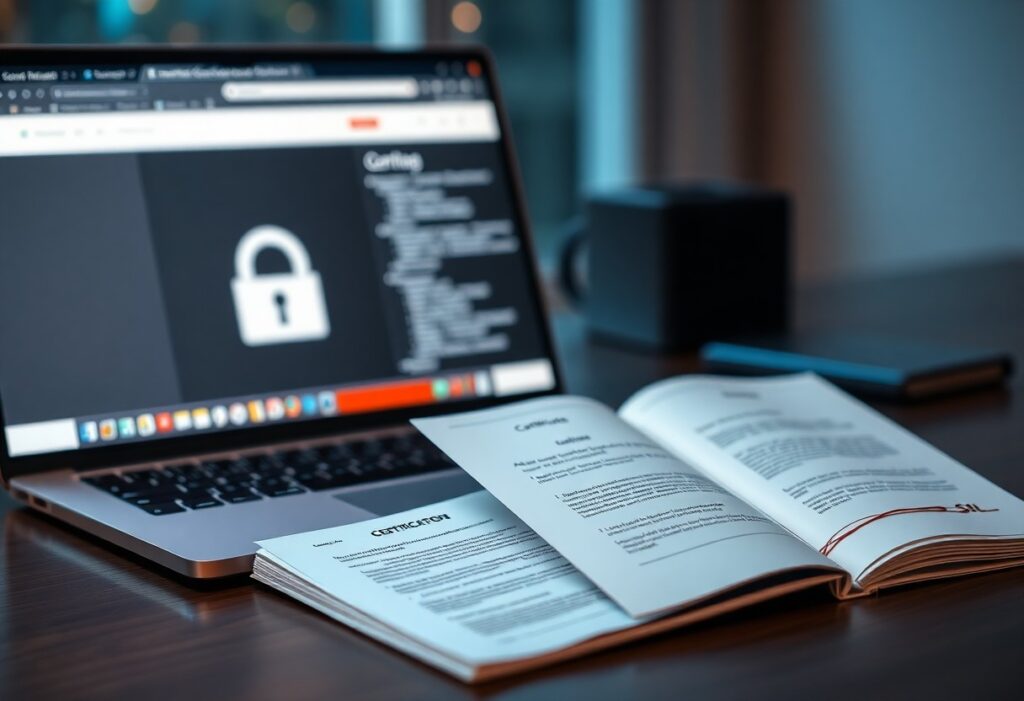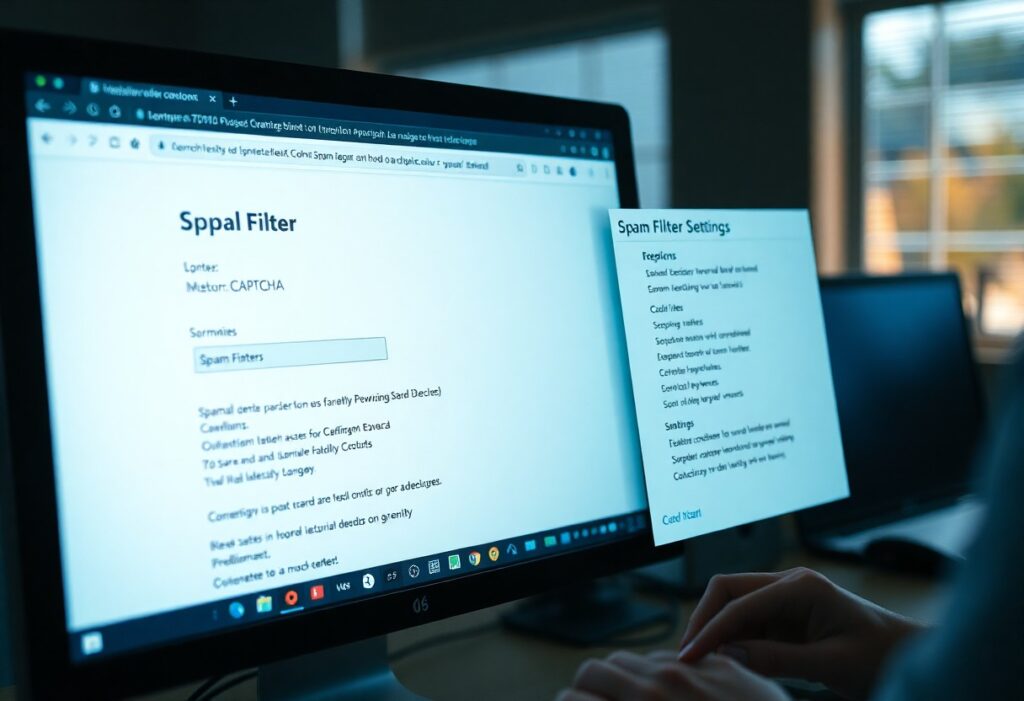Just as you protect your physical belongings, securing your WordPress site is important for your online success. When choosing a hosting provider, look for features like SSL certificates for encrypted data transfers, firewall protection to safeguard against malicious attacks, and regular backups to recover your site in case of emergencies. Additionally, ensure your host offers malware scanning and strong password enforcement to keep unauthorized access at bay. Investing in these security features will give you peace of mind and protect your valuable content.
How to Choose Secure WordPress Hosting
Selecting secure WordPress hosting demands an understanding of crucial security features and how they align with your specific needs. Look for providers that offer comprehensive measures like firewalls, SSL certificates, and automated backups. Evaluate their customer support responsiveness and security incident protocols to ensure assistance is available when it’s needed most. Thou should feel confident in their commitment to safeguarding your site.
Tips for Evaluating Security Features
To assess the security features of potential WordPress hosts, examine their protocols and technologies. Check for measures such as DDoS protection, malware scanning, and regular updates. Additionally, ensure they implement two-factor authentication for user accounts. Thou should compare multiple options to find a host that meets your expectations.
- DDoS protection
- malware scanning
- regular updates
- two-factor authentication
Factors to Consider in Hosting Plans
Investigate crucial factors in your hosting plan that contribute to security, like storage limits, bandwidth, and database security. Look for the inclusion of features such as daily backups and access to security plugins. Any host worth considering should offer a suitable balance between performance and protection.
- storage limits
- bandwidth
- database security
- daily backups
- security plugins
Further, prioritizing established providers can play a significant role in ensuring your site’s safety. Assess their uptime records and customer reviews to gauge reliability. Look for features such as automatic malware removal and security audits. Any host offering these measures enhances your site’s resilience against potential threats.
- automatic malware removal
- security audits
- customer reviews
- uptime records
Essential Security Features to Look For
Your WordPress hosting should encompass specific security features that go beyond basic protocols. Look for robust options that significantly enhance your site’s defenses. These features not only guard against hackers but also boost your site’s credibility with users. Opt for hosting providers that understand the unique security challenges of WordPress and offer integrated solutions like malware scanning, firewalls, and intrusion detection.
SSL Certificates and HTTPS
SSL certificates are non-negotiable for securing data exchanged between your site and its visitors. When your website implements HTTPS, it not only encrypts data but also provides a layer of trust for users, indicated by the padlock icon in their browser. Without an SSL certificate, sensitive information like passwords and credit card numbers becomes vulnerable, risking your site’s integrity and user confidence.
Regular Backups and Restore Options
Frequent backups are imperative in the event of a security breach or technical failure. A reliable hosting provider will offer automated backup solutions, allowing you to restore your site easily to its previous state. Without regular backups, you risk losing valuable data and having to rebuild your site from scratch after an incident.
Regular backups involve not just periodic data snapshots but also the reliability of restore options. Look for hosts that provide daily or even hourly backups, ensuring minimal data loss during issues. Additionally, verify the process of restoring backups—your provider should have a user-friendly interface or fast support to get your site back up and running quickly. Accessing backup archives and understanding the restoration timeline can make a significant difference when urgency strikes, helping you maintain your site’s uptime and integrity.
Firewall and Malware Protection
Effective firewall and malware protection form the backbone of your site’s security framework. A robust firewall acts as a barrier between your WordPress site and malicious traffic, filtering out threats before they can reach your server. Malware protection scans for and removes any harmful code that may compromise your site’s integrity. Investing in these features not only safeguards your website from attacks but also enhances user trust and search engine rankings.
Importance of a Web Application Firewall
A Web Application Firewall (WAF) specifically protects against common threats such as SQL injection and cross-site scripting. By monitoring and filtering HTTP traffic to and from your site, a WAF effectively blocks harmful requests while allowing legitimate traffic through. This layer of security acts as your first defense line, ensuring that attacks are thwarted before reaching your WordPress installation.
Malware Scanning and Removal
Malware scanning identifies vulnerabilities within your WordPress site by examining files for known malware signatures. Upon detection, effective malware removal processes help to clean infected files, restoring your site’s functionality and security. Regular scanning is vital, as many malware infections can go unnoticed for extended periods, posing serious risks to your data and reputation.
Many hosting providers offer automated malware scanning features that run daily or weekly checks on your site, alerting you immediately to any threats. If malware is detected, immediate removal tools can restore your site to a safe state, reducing downtime and potential data loss. According to recent studies, websites without consistent malware monitoring have a significantly higher risk of data breaches and loss of customer trust. Prioritize this feature to maintain the integrity and reliability of your WordPress site.
User Access Controls and Authentication
User access controls and authentication are fundamental in protecting your WordPress site from unauthorized access. By implementing strict user permissions and multi-layered authentication processes, you can significantly reduce the risk of data breaches and secure sensitive information. Ensuring each user has only the privileges necessary for their role minimizes potential vulnerabilities and enhances overall site security.
Role Management and Permissions
Effective role management involves defining user roles and assigning appropriate permissions tailored to each individual’s responsibilities. WordPress allows you to create custom roles, ensuring that users can only access the features they need. For instance, an editor may need the ability to publish posts, while a contributor might only require access to submit draft content. This granular control is vital for maintaining a secure environment.
Two-Factor Authentication Usage
Two-factor authentication (2FA) adds a significant layer of security by requiring users to provide two forms of identification before accessing their accounts. This process typically involves combining something you know, like a password, with something you have, such as a smartphone app that generates a time-sensitive code.
Utilizing 2FA can reduce the risk of unauthorized access dramatically; statistics show that accounts with 2FA are 99.9% less likely to be compromised. When enabling 2FA, consider using apps like Google Authenticator or Authy for reliable code generation. Make sure to foster a culture of awareness among your users, emphasizing the necessity to secure their accounts with this enhanced authentication method, especially in light of the growing prevalence of hacking attempts targeting weak passwords.
Performance Monitoring and Security Audits
Regular performance monitoring and security audits are crucial for maintaining the integrity of your WordPress site. These processes help identify vulnerabilities and ensure your website runs optimally, safeguarding against potential breaches. Tools designed for these purposes enable you to keep track of various metrics and identify problems before they escalate into serious issues.
Tools for Performance Monitoring
Utilizing tools like Google PageSpeed Insights and GTmetrix can help you assess your site’s loading speed and overall performance. These tools provide metrics and recommendations for improvements, allowing you to optimize your content delivery and enhance user experiences. Regularly checking these metrics ensures your site remains competitive and responsive.
Scheduling Regular Security Audits
Establishing a routine for security audits can significantly reduce the risk of data breaches and malware infections. Audits should include assessments of plugin vulnerabilities, WordPress core updates, and theme security. By implementing a schedule—such as quarterly reviews—you reinforce your security measures and adapt to new threats effectively.
During a security audit, you should review user permissions, update passwords, and scan your site for malware. Tools like Wordfence and Sucuri can automate some of these checks and provide detailed reports on vulnerabilities. Create a checklist that covers all aspects of your site’s security, ensuring comprehensive reviews. This proactive approach not only helps in identifying weaknesses but also fosters a culture of security awareness among those managing your site.
Trusted Support and Resources
Your WordPress hosting provider should offer reliable support and valuable resources to ensure your website operates smoothly and securely. Access to knowledgeable professionals can make a significant difference when tackling issues related to performance, security, or updates. A robust support system includes both timely assistance and a comprehensive library of educational materials, empowering you to make informed decisions about your site’s management.
Importance of 24/7 Support
Reliable 24/7 support means that no matter when you encounter an issue, help is always just a call or click away. Technical problems can arise at any hour, and having access to knowledgeable staff around the clock minimizes potential downtime. This constant availability ensures that you can address emergencies promptly, protecting your site’s reputation and functionality.
Community and Knowledge Base Resources
A strong community and extensive knowledge base enhance your experience with WordPress hosting. Access to a community of users and experts allows you to share experiences, troubleshoot issues, and learn best practices. Knowledge bases filled with articles, tutorials, and FAQs can provide quick resolutions to common problems, saving you time and effort.
Joining a community forum or utilizing online resources leads to faster problem-solving. Many hosting providers foster user engagement through forums, enabling you to pose questions and receive responses from seasoned users. Additionally, well-maintained knowledge bases often include video tutorials, step-by-step guides, and updates on best practices, equipping you with the tools necessary to enhance your website’s performance and security confidently.
To wrap up
From above, it’s clear that your WordPress hosting must include vital security features to safeguard your website. You should prioritize robust SSL encryption, regular malware scanning, automatic backups, and firewalls to protect your data and enhance user trust. Additionally, two-factor authentication and security monitoring tools can add valuable layers of protection. By ensuring these security measures are in place, you effectively minimize risks and create a safe environment for both you and your visitors.
FAQ
Q: What security features should WordPress hosting include?
A: WordPress hosting should include strong firewalls to protect against unauthorized access and DDoS attacks.
Q: How does SSL support enhance WordPress security?
A: SSL support encrypts data transmitted between the server and users, ensuring secure transactions and communications.
Q: Why is daily backups important in WordPress hosting?
A: Daily backups allow for quick recovery of website data in case of security breaches, data loss, or server failures.
Q: What role does malware scanning play in WordPress hosting?
A: Regular malware scanning detects and removes harmful software, reducing the risk of security breaches.
Q: How does automatic updates benefit WordPress security?
A: Automatic updates for WordPress core, themes, and plugins ensure that security vulnerabilities are patched promptly.
Q: What is the significance of secure file permissions in hosting?
A: Secure file permissions prevent unauthorized users from accessing or modifying critical files within the WordPress installation.
Q: How does two-factor authentication enhance account security?
A: Two-factor authentication adds an extra layer of protection by requiring a second form of verification in addition to a password.
Need expert help managing your WordPress site?
If "What security features should WordPress hosting include?" was useful, imagine your site with expert care — speed, security, uptime, and updates handled for you.



